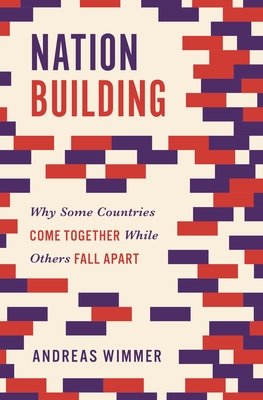Expedite your nonfiction book discovery process with Readara interviews, summaries and recommendations, Broaden your knowledge and gain insights from leading experts and scholars
In-depth, hour-long interviews with notable nonfiction authors, Gain new perspectives and ideas from the writer’s expertise and research, Valuable resource for readers and researchers
Optimize your book discovery process, Four-to eight-page summaries prepared by subject matter experts, Quickly review the book’s central messages and range of content
Books are handpicked covering a wide range of important categories and topics, Selected authors are subject experts, field professionals, or distinguished academics
Our editorial team includes books offering insights, unique views and researched-narratives in categories, Trade shows and book fairs, Book signings and in person author talks,Webinars and online events
Connect with editors and designers,Discover PR & marketing services providers, Source printers and related service providers

Nation Building: Why Some Countries Come Together While Others Fall Apart
Social Science > Sociology - General
- Princeton University Press
- Paperback
- 9780691202945
- 8.9 X 5.9 X 0.9 inches
- 1.2 pounds
- Social Science > Sociology - General
- (Single Author) Asian American
- English
Readara.com
Book Description
A new and comprehensive look at the reasons behind successful or failed nation building
Nation Building presents bold new answers to an age-old question. Why is national integration achieved in some diverse countries, while others are destabilized by political inequality between ethnic groups, contentious politics, or even separatism and ethnic war? Traversing centuries and continents from early nineteenth-century Europe and Asia to Africa from the turn of the twenty-first century to today, Andreas Wimmer delves into the slow-moving forces that encourage political alliances to stretch across ethnic divides and build national unity.
Using datasets that cover the entire world and three pairs of case studies, Wimmer's theory of nation building focuses on slow-moving, generational processes: the spread of civil society organizations, linguistic assimilation, and the states' capacity to provide public goods. Wimmer contrasts Switzerland and Belgium to demonstrate how the early development of voluntary organizations enhanced nation building; he examines Botswana and Somalia to illustrate how providing public goods can bring diverse political constituencies together; and he shows that the differences between China and Russia indicate how a shared linguistic space may help build political alliances across ethnic boundaries.
Wimmer then reveals, based on the statistical analysis of large-scale datasets, that these mechanisms are at work around the world and explain nation building better than competing arguments such as democratic governance or colonial legacies. He also shows that when political alliances crosscut ethnic divides and when most ethnic communities are represented at the highest levels of government, the general populace will identify with the nation and its symbols, further deepening national political integration.
Offering a long-term historical perspective and global outlook, Nation Building sheds important new light on the challenges of political integration in diverse countries.
Author Bio
Andreas Wimmer was educated at the University of Zurich, from where he received a PhD in social anthropology in 1992 and a habilitation two years later. He joined Columbia University in 2015 as the Lieber Professor of Sociology and Political Philosophy. He previouly taught sociology at Princeton University, where he also served as director of the Fung Global Fellows Program, and at the University of California Los Angeles (from 2003 to 2012).
Before moving to the United States, Wimmer was founding director of two interdisciplinary research institutes: the Swiss Forum for Migration and Population Studies at the University of Neuchâtel (from 1995 to 1999) and the Department of Political and Cultural Change at the Center for Development Research of the University of Bonn (from 1999 to 2002).
Wimmer received the Heisenberg fellowship from the German Research Foundation, was Senior Associate Member of St Antony's College of Oxford University, a fellow of the Center for Advanced Studies Berlin, visiting professor at Harvard University, the European University Institute in Florence, the University of Paris 8, Kyoto University, the Social Science Research Center Berlin, the Ecole des hautes études en sciences sociales in Paris, SciencesPo in Paris, and a Jenning Randolph Senior Fellow at the United States Institute of Peace.
For Princeton University Press, Wimmer edits the book series Studies in Global and Comparative Sociology. He is a Fellow of the Boundaries, Membership & Belonging Program of the Canadian Institute for Advanced Research, a member of the Council on Foreign Relations, an external fellow of the Center for Research and Analysis of Migration of University College London, board member of (among others) the Institute for World Society of Bielefeld University, the Max Planck Institute for the Study of Religious and Ethnic Diversity, and the Foundation for Population, Migration, and Environment.
He is or was associated with the editorial boards of the American Journal of Sociology, World Politics, Sociological Theory, Ethnic and Racial Studies, and Nations and Nationalism. He is also a past chair of the Comparative Historical Section of the American Sociological Association.
Source: Columbia University
Videos
No Videos
Community reviews
No Community reviews

